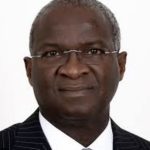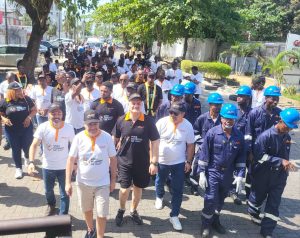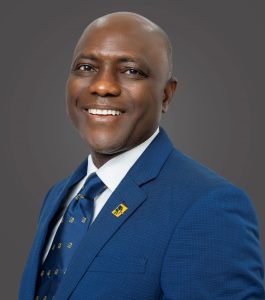
The Executive Vice Chairman and Chief Executive of the National Agency for Science and Engineering Infrastructure (NASENI), Prof. Mohammad Sani Haruna, has hinted that the federal government would establish three industrial parks in the country.
The chairman made this known during a courtesy call to the Commandant of the Nigerian Air Force Institute of Technology, Kaduna.
In his statement, Haruna said about N3.25bn had been earmarked for the first phase of the parks which would be sited in Nnewi (Anambra State); Osogbo (Osun State) and Igabi (Kaduna State).
He also said centre of NASENI Helicopter project of assembly and first made in Nigeria Helicopter is being relocated to Aeronautics and Air Vehicle Development Institute (AAVDI) in Kaduna.
“The Federal Government of Nigeria has planned to develop industrial parks for the Automotive sectors in three zones of the country: Nnewi (Anambra State) Osogbo (Osun State) and Igabi (Kaduna State). Once fully taken up and equipped, the automotive park will be self-sustaining and a government revenue source.
“In the first phase of the project, the Federal Ministry of Finance, Budget and National Planning has earmarked N3,250,000,000 for take-off and we appreciate the Honourable Minister for the commitment and interest to the project.
“We are equally grateful to Malam Nasir El-Rufai, the Executive Governor of Kaduna State for the allocation of 50 Hectares of land and his Excellency’s magnanimity for granting waivers of all statutory fees for the title of the land.”
Explaining the objectives behind the industrial parks, Haruna said the project initiative is in line with the concept of Federal Ministry of Industry, Trade and Investment which initially proposed establishing the Automotive Supplier Industrial Park (ASIP) in the three locations in the country for technology evolution in the automotive sector.
According to him, “This is in line with the mandate of NASENI for provision and development of primary and intermediate capital projects required for machine and equipment design, fabrication, and mass production, in order to provide the enabling environment for sustainable industrialization of the country.
“Completion of phase one of the project within the next few weeks will enable commissioning and commencement of operation which can run concurrently with development works in phase two of the project,” Haruna said.
He said the EVC sought for collaboration with the Nigerian Air Force Institute of Technology, Kaduna.
According to him, the institute had the mandate to research and develop spare parts, components and systems of aeronautics and air vehicle technologies. He said it was mandated to produce both passenger and military aircraft through backward integration








